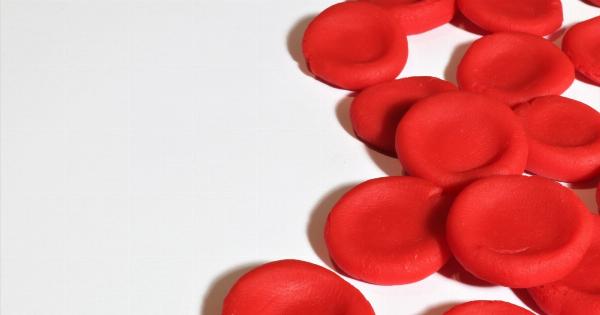Red blood cells or RBCs perform the vital function of carrying oxygen from the lungs to different parts of the body. In addition, they also transport carbon dioxide, a waste product, from the body tissues to the lungs for elimination.
Low levels of RBCs, also known as anemia, can lead to various health problems like fatigue, shortness of breath, and increased susceptibility to infections. Your diet plays a crucial role in maintaining healthy levels of red blood cells. Here’s a list of 10 foods that can help increase your red blood cell count.
1. Spinach
Packed with iron, spinach is a nutritional powerhouse that can help boost your red blood cell count. Iron is an essential mineral that helps in the production of hemoglobin, the protein that carries oxygen in the blood.
Spinach also contains vitamin C, which helps in the absorption of iron. Whether eaten raw or cooked, spinach is highly beneficial for maintaining healthy levels of red blood cells.
2. Red Meat
Red meat, such as beef and lamb, is an excellent source of heme iron, which is easily absorbed by the body. Heme iron is found in animal-based foods and is more readily absorbed than non-heme iron found in plant-based foods.
Consuming red meat in moderation can provide the necessary iron required to increase red blood cell count.
3. Poultry
Chicken and turkey are good sources of B vitamins, including vitamin B12 and folate, which are essential for the production of red blood cells.
Vitamin B12 is primarily found in animal-based foods and is necessary for the synthesis of DNA, the genetic material in all cells, including RBCs. Folate, on the other hand, helps in the formation of new RBCs.
4. Shellfish
Shellfish, such as clams, oysters, and mussels, are rich in iron, zinc, and vitamin B12. Iron and vitamin B12 are essential for the production of red blood cells, while zinc aids in the synthesis of hemoglobin.
Consuming shellfish can help increase red blood cell count and improve overall health.
5. Beans and Legumes
Beans and legumes, such as lentils, chickpeas, and kidney beans, are a great source of plant-based protein, fiber, and iron. They are also rich in folate, which is essential for the production of RBCs.
Adding beans and legumes to your diet is an excellent way to increase your red blood cell count and maintain overall health.
6. Eggs
Eggs are a great source of iron, protein, and vitamin B12, all of which contribute to red blood cell production. Vitamin B12 is primarily found in animal-based foods and is essential for the creation of DNA in RBCs.
Consuming eggs can help increase the number of RBCs and improve overall health.
7. Dark Chocolate
Dark chocolate contains high levels of iron, copper, and magnesium, all of which are essential for the production of red blood cells.
Iron and copper are necessary for the synthesis of hemoglobin, while magnesium aids in the transportation of oxygen in the blood. Eating dark chocolate in moderation can help increase your red blood cell count and improve your overall health.
8. Nuts and Seeds
Nuts and seeds, such as almonds, pumpkin seeds, and cashews, are rich in protein, fiber, and minerals like iron, copper, and magnesium, all of which are essential for the formation of red blood cells.
Including nuts and seeds in your diet can help increase the number of RBCs and improve your overall health.
9. Beetroot
Beetroot contains high levels of iron, folate, and vitamin C, all of which are essential for the formation of red blood cells. Iron is necessary for the synthesis of hemoglobin, while folate and vitamin C aid in the production of RBCs.
Consuming beetroot in the form of juice or salad can help increase your red blood cell count and improve your overall health.
10. Citrus Fruits
Citrus fruits like oranges, lemons, and grapefruits are rich in vitamin C, which aids in the absorption of iron. Iron is necessary for the formation of hemoglobin in RBCs, making citrus fruits an essential food for increasing your red blood cell count.
Adding citrus fruits to your diet can also help improve your overall health by boosting your immune system.
Conclusion
Consuming a diet rich in vitamins, minerals, and nutrients is essential for maintaining healthy levels of red blood cells.
Incorporating the foods listed above into your diet can help increase your red blood cell count, improve your energy levels, and boost your immunity. However, it’s essential to consult with your doctor before making any significant dietary changes, especially if you have an existing medical condition.































